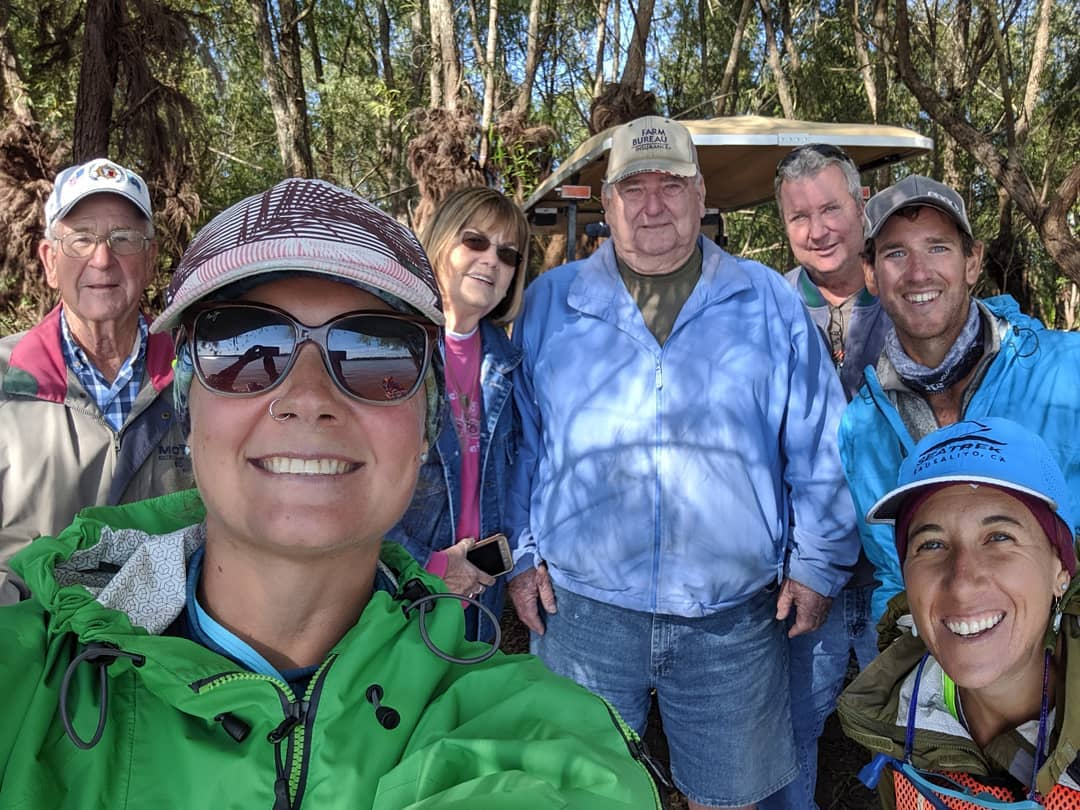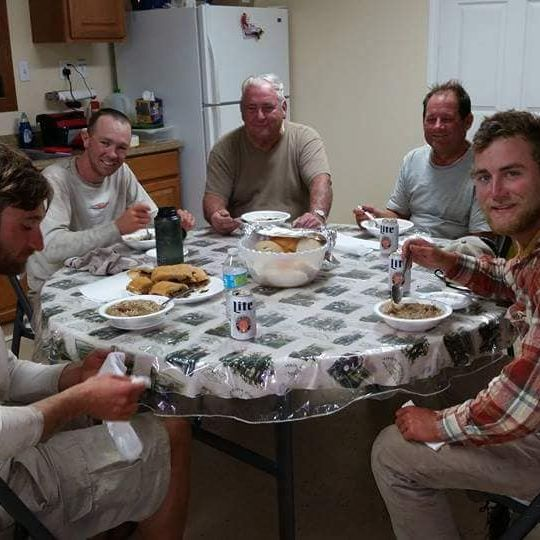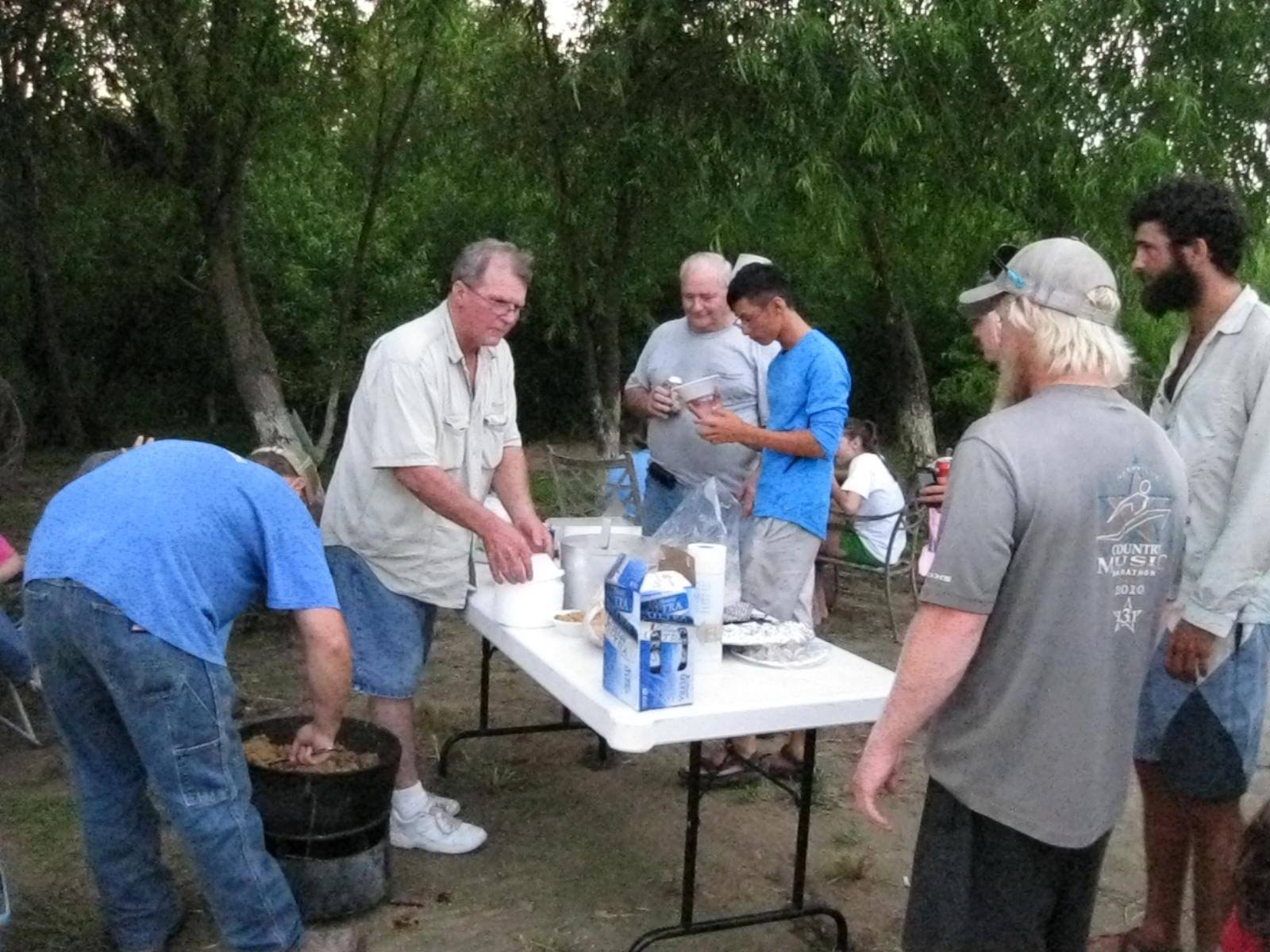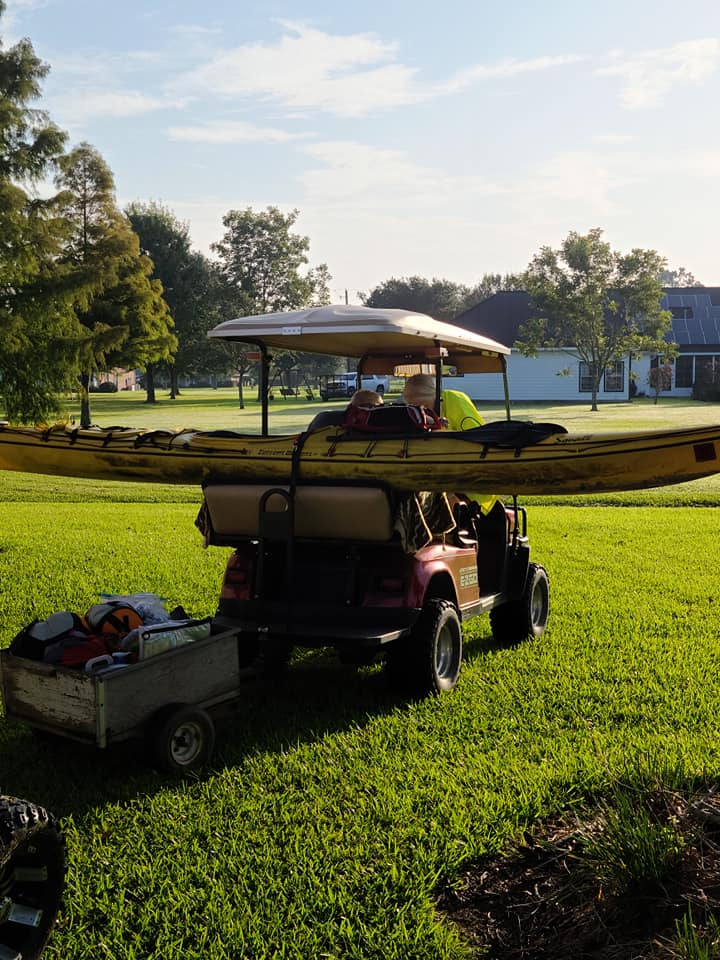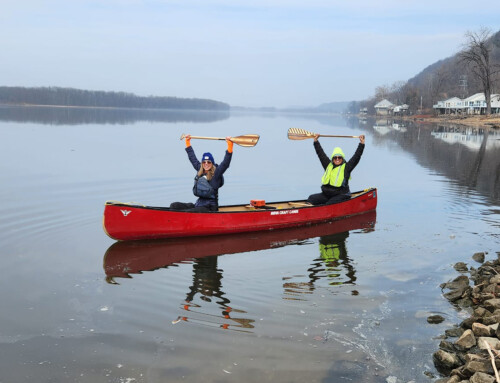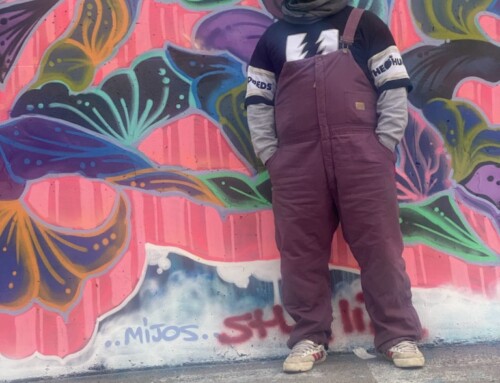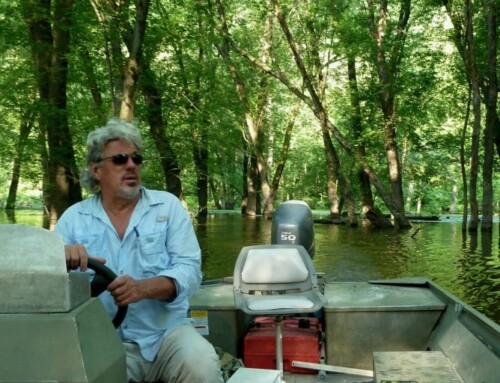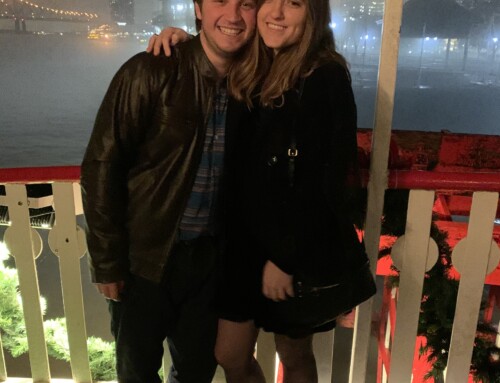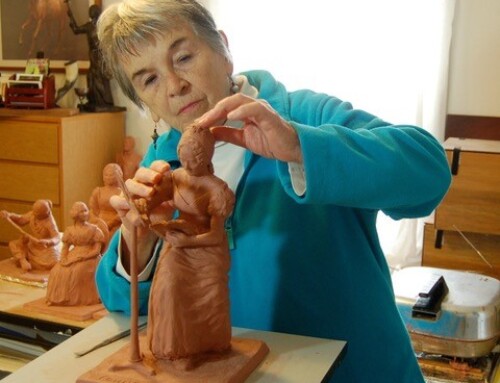There’s a hidden world along the Mississippi River, a network of folks who live along the river who are willing—eager, even—to lend a helping hand just because they want to. We call them river angels. If you’re a long-distance paddler, you already know about them. And if you’re one of those paddlers who has made it to Louisiana, you know about the river angels at mile 149: Trixie, Wayne, Charlie, and Doug Poché (poe-shay, if you plan on asking for them without getting hung up on).
The Pochés’ oasis is about halfway between Baton Rouge and New Orleans, in the middle of a busy industrial and shipping corridor that challenges the skills of the best paddlers. Flag poles help mark their spot on the east bank downriver of Stone Oil after the bend. If the river’s low, they have a nice spot of grass and shade under willow trees in the batture (the land on the river side of the levee) When the river’s higher, they shuttle paddlers in a golf cart over the levee to dry land. Adjacent to their property, you’ll also find a nice sandbar with a pond where a congregation of alligators live. “We tell them [paddlers] don’t go swimming in there,” Trixie said.
Trixie thinks the first time they helped a paddler was maybe 20 years ago, possibly longer, when friends of her nephew passed by on a long trip down the Tennessee, Ohio, and Mississippi Rivers. Extended family and neighbors pitched in to feed and look after them. The number of through paddlers seems to have gone up in recent years, so it’s not usual if they see two or three groups a week during the peak season.
River angels will do just about anything to help other river people, especially paddlers: refill water bottles, take them to the store, feed them, help them dry out. When one long-distance paddler injured his back, Wayne drove him to a chiropractor.
One memorable summer evening a while back, the Pochés hosted ten paddlers at once, which included an older brother who was taking his younger brother on a long-distance paddle “… ‘cause he wanted to teach him that there were more things than sitting in front of the television with a remote,” Trixie recalled.
The Pochés and other river angels get nothing from this experience. Well, almost nothing. Trixie admits that helping river folks brings her joy, and more. “Like I say, it goes both ways. We learn a lot from them, also.” They’ve met paddlers from around the world and learned about their home cultures. They’ve met seasoned adventurers who shared stories of their experiences in remote parts of the world. They also get to introduce folks to a bit of their own culture, like the paddler who had never before eaten a po’ boy.
They’ve lost track of the number of paddlers they’ve helped, but many of them keep in touch. “That’s the good thing about it. I still talk with some of these guys on Facebook. We’ve had great stories from them, and they got stories from us.” A few offer thanks in their own ways, like a sketch made while paddling the river or a copy of a book they wrote about their experiences.
For a long time, the Pochés were the only river angels in the area, but they’ve since been joined by a handful of others nearby, which is a good thing. The Pochés, Trixie and Wayne in particular, are slowing down.
“Just recently I wrote a hard letter and told the guys I can’t do this anymore.” Her body is telling her to take it easy, maybe to spend less time hauling gear and cooking meals from scratch and more time sitting in the batture with a book and her dog, especially on those days when a light cooling breeze blows off the water.
Don’t fret, though, paddlers. The Pochés’ oasis isn’t going away. If she has food already cooked, she’ll be glad to share some. And other Pochés are stepping up to continue the river angel tradition. “Somebody will always be back there, and you can stop at river marker mile 149.”
